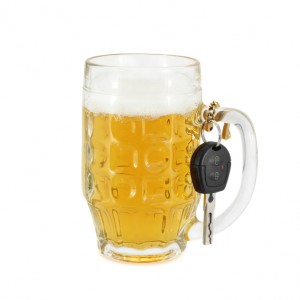 Ohio Gov. John Kasich signed legislation last month that banned the sale of powdered alcohol, making it the 15th state in the nation to do so despite federal approval earlier this year. Ohio Gov. John Kasich signed legislation last month that banned the sale of powdered alcohol, making it the 15th state in the nation to do so despite federal approval earlier this year.
The substance, known as Palcohol, is a powdered substance that can be added to liquid drinks to make them alcoholic. Because of its similarity to powdered caffeine, lawmakers included the substance in a bill originally designed to ban the powdered caffeine, according to the Columbus Dispatch.
The bill to ban powdered caffeine was drafted after an 18-year-old Ohio man died in May 2014. He ingested a large amount of the substance, which some consider to be highly dangerous. According to the article, a teaspoon of the substance is equal to the amount of caffeine in 25 cups of coffee.
The new law will make it a misdemeanor offense to sell products consisting solely or primarily of caffeine that is manufactured into a crystalline, liquid or powdered form. The second offense would be considered a third-degree misdemeanor.
Lawmakers argued minors easily could obtain and consume the powered substances, specifically the powered alcohol. This could lead to more reports of underage drinking and juvenile drunk driving offenses.
Additionally, lawmakers in favor of the ban argued the powered substance could make it difficult to determine what amount is safe to consume. For instance, if a person consumes a beer with a clear alcohol content label, he or she could determine a safe amount.
The powdered substance, however, could make it difficult to determine the actual alcohol level in a beverage. This presents a serious danger to those consuming the drinks, especially if he or she gets behind the wheel. The penalties could be much worse for an underage DUI.
In Ohio, the legal limit regarding a DUI for a driver younger than 21 years old is a blood or breath alcohol concentration of 0.02. This is a quarter of the legal limit for drivers who are of legal drinking age in The Buckeye State.
When an underage driver is pulled over with a BAC more than 0.02, he or she will be charged with Operating a Vehicle After Under Age Consumption. An OVUAC charge could be considered a fourth-degree misdemeanor and could be punishable by a class 6 driver’s license suspension.
Other penalties associated with an underage DUI charge in Ohio could include:
- Thirty days of jail time or probation;
- A $250 fine;
- A drivers license suspension between 90 days and two years;
- A court-mandated alcohol treatment program; and
- A remedial driving instruction course.
For a second OVUAC conviction, the fine could be increased to $500, the jail sentence to 60 days and the license suspension to five years. If an underage driver has a BAC more than 0.08, he or she could face even stronger penalties.
If you or a loved one faces charges for DUI under the age of 21 in Columbus, Ohio, or the surrounding areas, contact Joslyn Law Firm. Our attorneys understand the complexities of DUI cases, and they can work with you to ensure your rights are represented. Call (614) 444-1900 o schedule a free consultation today. Begin protecting your future immediately.
 The alcohol limit of beer made and sold in Ohio could increase from 12 to 21 percent if a proposed bill makes its way through the Legislature this session. The alcohol limit of beer made and sold in Ohio could increase from 12 to 21 percent if a proposed bill makes its way through the Legislature this session.
State Rep. Dan Ramos has been the driving force behind the change. He originally introduced the idea into legislation in 2011. After it failed, he proposed it again in 2013 before creating what now is known as House Bill 68, according to Cleveland.com.
If the bill passes, breweries would be able to manufacture beer with an alcohol by volume content up to 21 percent and sell and distribute any beer with an alcohol percentage up to the maximum. The nearly 130 breweries in Ohio currently cannot exceed a 12 percent alcohol by volume content.
Beers with higher alcohol volumes are manufactured and sold in several of Ohio’s bordering states. In fact, Kentucky, Michigan and Pennsylvania do not have a limit on the alcohol content of beer, although some have restrictions on ciders.
When drinking these high-volume beers, it is important to remember they may affect your body differently than a beer with only 5 percent alcohol. In other words, you could become intoxicated faster and it could take fewer of these beers to put you over the legal limit.
In Ohio, drivers could be charged with an OVI if they are under the influence of alcohol and have a blood alcohol concentration of 0.08 to 0.17 while operating or driving a motor vehicle, according to Ohio Revised Code §4511.19.
These drunk driving charges always should be taken seriously. A first DUI charge in Ohio likely would be a misdemeanor of the first degree. This could carry up to 180 days in jail, fines up to $1,075 or both. Additionally, a conviction could have a serious impact on subsequent charges.
However, if a person is found to be significantly over the legal limit, the punishments could be much more severe. If a driver has an alcohol level of .17 or above, or .238 (two hundred thirty-eight thousandths) or above in the urine, he or she may be arrested for a high test DUI.
According to Ohio Revised Code §4511.19, a high test DUI could charge could mean up to six months in jail. This also could include a fine between $375 and $1,075. Even after the jail time and fines, drivers could face penalties associated with their driver’s license.
The court could order a driver’s license suspended for a period ranging from six months to three years. An ignition interlock device also could be required. This device would be installed in the driver’s car and it would prevent the vehicle from starting without a clean breath sample.
No matter the offense, a DUI charge always should be handled immediately. The consequences of a conviction could outlast the court-issued punishments. Having an experienced DUI defense lawyer could make the difference in your case. Call Brian Joslyn of Joslyn Law Firm at 614-444-1900 to learn more about fighting DUI charges.
A proposed bill in the Oklahoma Senate would impose additional restrictions on those convicted of a drunk driving offense, including prohibiting them from purchasing and consuming alcohol for a certain period of time after the alleged offense.
State Sen. Patrick Anderson proposed the new regulations under Senate Bill 30. This law essentially would prohibit those convicted on DUI charges from buying or consuming alcohol for a probationary period, which would be determined by a judge during sentencing.
According to the bill, this could apply if a person is convicted of operating a vehicle or being in control of a motor vehicle while he or she was under the influence of alcohol. This would be applied no matter the type of DUI offense, even if it is a person’s first offense.
The bill also would require that a notation of this new restriction be affixed to the person’s driver license at the time it is reinstated. This means any time a person has to present identification, he or she is revealing the previous conviction with the notice “Alcohol Restricted.” Additionally, a notice of the order must be given to the Oklahoma Department of Public Safety.
The restriction would remain on the driver’s license for the entirety of the period that the court determines, according to the bill. The restriction may be modified or removed by order of the court, and if this is done, notice of the order must be given to the department.
Once the restriction period has expired, the department would remove the restriction. However, the driver likely would have to get another license to have the notification of the restriction removed. This could be a costly and timely punishment.
If a person fails to meet the requirements under the new law, he or she could face additional penalties. According to the bill, a violation “may be punished as deemed proper by the sentencing court.” This means the penalties could vary depending on the situation.
Additionally, it would be considered a felony offense to knowingly sell, deliver or furnish alcoholic beverages to a person who has been ordered to abstain or refrain from consuming alcohol. Violating this could mean a fine between $500 and $1,000, up to one year in jail or both.
Currently in Ohio, when a driver is convicted of a DUI, or OVI offense, he or she can face several harsh penalties, including jail time, expensive fines and ignition interlock devices. No matter the charge, it can be beneficial to have an experienced Columbus DUI defense attorney on your side.
|
 Ohio Gov. John Kasich signed legislation last month that banned the sale of powdered alcohol, making it the 15th state in the nation to do so despite federal approval earlier this year.
Ohio Gov. John Kasich signed legislation last month that banned the sale of powdered alcohol, making it the 15th state in the nation to do so despite federal approval earlier this year.
 The alcohol limit of beer made and sold in Ohio could increase from 12 to 21 percent if a proposed bill makes its way through the Legislature this session.
The alcohol limit of beer made and sold in Ohio could increase from 12 to 21 percent if a proposed bill makes its way through the Legislature this session.

